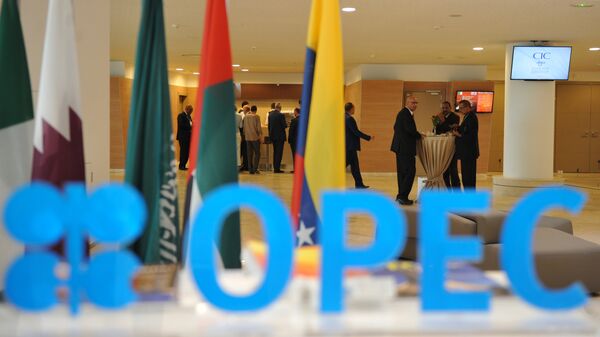VIENNA (Sputnik) — Representatives from the 14 cartel members are expected to finalize a preliminary agreement on limiting production to stabilize oil prices following a deal reached in September.
"The main thing for us is [if] non-OPEC accepts reduction with or without meeting," Zangeneh said at the OPEC meeting in Vienna.
September's deal seeks to set the oil output ceiling at 32.5-33 million barrels a day for the whole of OPEC. Non-OPEC oil producing states, such as Russia and Azerbaijan, have also expressed their interest in joining the move. Russian President Vladimir Putin has stated that Russian energy companies were ready to freeze oil output at the current level, adding they did not expect the curbs to hurt national economy.
Oil market turbulence caused oil prices to plunge from $115 per barrel in June 2014 to less than $30 per barrel in January 2016, causing hardship for oil exporters and placing a number of global oil producers at risk of bankruptcy. Since then, prices have slightly increased and are currently at $45-50 per barrel.
The previous oil producers' talks to freeze output failed in April after Iran refused to limit its output, prompting Saudi Arabia to pull out as well. Under the new deal, Iran has been granted exemptions from production cuts alongside Libya and Nigeria.


